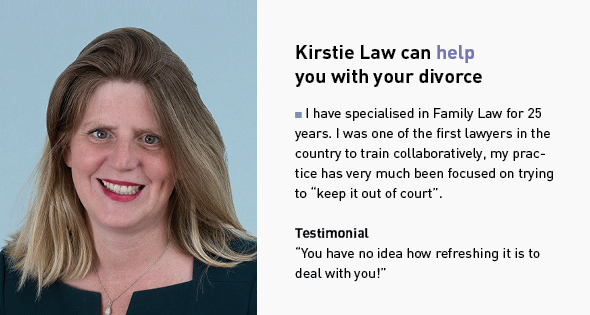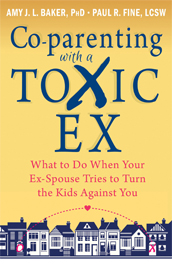The Difficult Decision To Divorce A Loved One With Dementia

- This blog contains affiliate links, which we may receive a commission for purchases. The decision is yours, whether or not you decide to buy.
Back in 2014, the Alzheimer’s Society report predicted that by 2025 the number living with dementia would rise to over 1,000,000. NHS data actually shows that the number of people assessed with dementia has fallen to less than half the level before the Covid-19 pandemic – 10,535 in February 2021 compared to 23,392 in February 2020.
Further, in the same period, the number of people receiving an initial memory assessment fell by two thirds, while the number of referrals to memory clinics – which help diagnose dementia, fell by 42%.
As a consequence of this, the total number of patients aged over 65 with a dementia diagnosis fell by just over 43,000 – a drop of 10%. It is highly likely that these figures are misleading and that there will be many others undiagnosed within the thousands of people waiting for diagnosis.
This is a particularly difficult time for families and people with dementia, because they do not yet know how and when the services will get through to them.
As a family lawyer, I know how hard it can be for people faced with a spouse living with dementia. When marriage vows were said many years ago, “in sickness and in health” meant looking after someone with physical impairments but few people actually considered the reality of living with someone whose personality may be dramatically altered as a consequence of dementia and living together for decades like this.
People who have lost loved ones to dementia often say that it is a double bereavement. Firstly, when you lose the personality of the person you love and then, often many years down the line, when you suffer the physical loss.
The years in-between can be incredibly challenging and significantly impact on the caring spouse’s mental health. The carer may feel trapped and isolated.
One of the sad side effects for some living with dementia is aggression, which can mean the caring spouse does not want to socialise with family and friends who might then witness this sort of behaviour.
It is not unusual for personalities to change during a marriage and often a personality change is one of the reasons cited as behaviour leading to the decision to divorce. People often feel very uncomfortable even contemplating divorcing a spouse who has been diagnosed with dementia. There is huge guilt as a result of not standing by the spouse in ill health and also a fear of being judged by others.
Very often people do not think about what their spouse would have wanted for them had they known that their personality was going to change so dramatically. Would they have wanted the person they love to become their carer for many decades and to miss out on family and social relationships that they have previously enjoyed?
Would they have acknowledged that perhaps their needs on a professional level would be better met by those who have chosen to and are qualified to work as carers?
If you are living with someone with dementia and feel like your marriage has come to an end, it is sensible to take advice. There may be immediate practical issues, such as protecting assets if the other spouse is behaving recklessly and irresponsibility with money.
If the thought of divorce is too much, there is also the option of judicial separation and the fact that your spouse may lack capacity does not prevent the court dealing with divorce or judicial separation and financial proceedings, albeit someone would be appointed to act as a litigation friend.
The litigation friend might be a family member or friend, or someone who was appointed under an Enduring or Lasting Power of Attorney prior to ill health. This is generally the preferred option to appointing the Official Solicitor because of the potential costs and understandably more cautious approach than perhaps a family member or friend would take in the circumstances.
It is important to appreciate that the court will not judge people for making the decision to end the marriage. It will instead focus on the practicalities which might include future living arrangements and the effect capital will have on the need to contribute towards carers or residential home fees.
It is a very difficult decision to decide what is best when you are dealing with someone you love. People often keep their fears and concerns to themselves.
This is particularly so during lockdown when there is less contact with others, only to find that when they share these fears with other family members they are very supportive of a decision that will ensure the spouse with dementia is appropriately cared for but not at too great a cost to the other spouse’s mental health.
Bear in mind that if the situation was reversed you may well have said that you would prefer to be looked after and cared for by professionals in a safe environment.
It is important that as well as considering the legal and financial practicalities of any decision to separate, you also have emotional support.
I would suggest that this should include not just emotional support from family and friends but also professional support so that you can talk to someone completely independent about how you are feeling and what is best for you and your spouse going forward.
The Alzheimer’s Society is a great resource for information and support.
Written by Kirstie Law Solicitor, Collaborative Lawyer and Mediator at Thomson Snell & Passmore www.ts-p.co.uk
PHOTO CREDIT: FREEPIK
You may also like
Parenting books
Buy now from Amazon
Podcast
If you’re looking for some straight-up, positive advice on topics that affect your daily life, then check out The Sue Atkins Parenting Show. Each week Sue bare will discuss every possible aspect of your parenting challenges, from weaning to whining, boundaries round technology to stroppy teens. You’ll get practical tips, techniques and advice that really work- and it’s all totally free.
Articles
- 5 Ways To Parent With A Narcissist
- How To Be Great Parents Through Separation And Beyond
- Divorce From A Child's Perspective
Videos
Practical advice and tips from professionals on what to do with issues and challenges around divorce from parenting to finance.
Events
Practical tips & advice designed to help people going through divorce, whether online or in person.
Useful links
Here's a selection of organistaioins from parenting to finance to help you with your divorce.
Legal professionals
Related Posts
-

Helping Kids Cope When You’re Coping Too: Mental Health Strategies for Divorcing Parents
-

How Divorce Affects Digestion and Mood: The Gut-Brain Connection
-

Gardening Through Divorce: Finding Healing And Growth In The Garden
-

Eating Your Way Through Divorce: A Guide To Nourishing Your Body And Mind With Healthy Foods
-

How To Look After Your Mental Health Before, During And After Divorce


.jpg)

.jpg)



.jpg)

